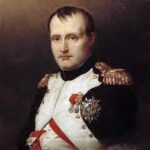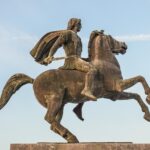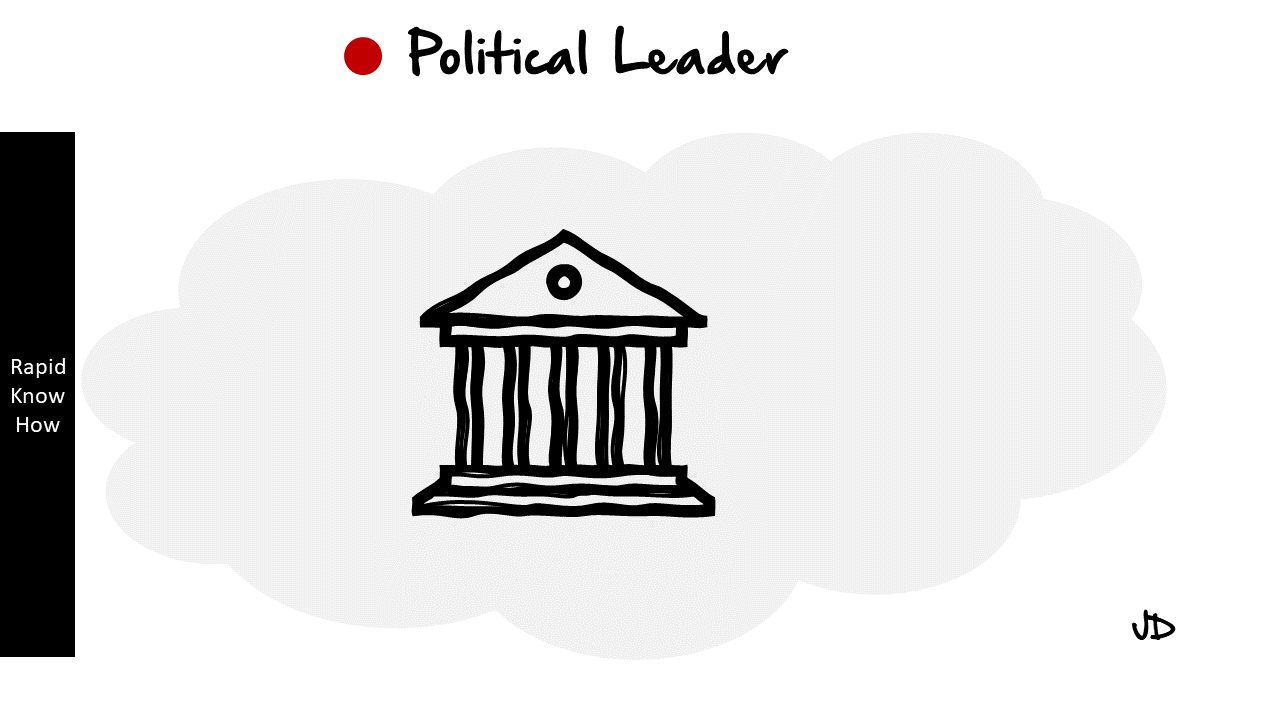Hitler’s : Ascent and Fall

“Hitler: Aufstieg und Ende” (Hitler: Ascent and Fall) refers to the rise and fall of Adolf Hitler, a significant figure in German history. Hitler was born on April 20, 1889, in Austria and moved to Germany in1913. He rose to power as a leader of the National Socialist German Workers’ Party (Nazis), becoming Chancellor of Germany in 1933.
Aufstieg (Ascent)
- Early Life and Military Service:
- Hitler served in World War I and was decorated for bravery. The defeat of Germany profoundly affected him, fueling his passion for nationalism and his disdain for the Versailles Treaty.
- Entry into Politics:
- After the war, Hitler joined the German Workers’ Party (DAP), which he quickly reshaped and renamed the National Socialist German Workers’ Party (NSDAP or Nazi Party).
- Beer Hall Putsch (1923):
- An early attempt to seize power in Munich failed, resulting in Hitler’s imprisonment, during which he wrote “Mein Kampf”.
- Legal Road to Power:
- After his release, Hitler pursued power through democratic processes. By exploiting economic turmoil, fear of communism, and effective use of propaganda, he expanded the Nazi Party’s reach.
- Appointment as Chancellor (1933):
- Despite never winning a majority in elections, Hitler was appointed Chancellor in 1933 by President Paul von Hindenburg, under pressure from advisers who believed they could control Hitler.
- Establishment of Dictatorship:
- Once in power, Hitler quickly dismantled democratic institutions and consolidated power, establishing a totalitarian regime. The Reichstag Fire Decree and the Enabling Act allowed him to neutralize opposition and govern by decree.
Ende (Fall)
- World War II (1939-1945):
- Hitler’s aggressive foreign policies led to the invasion of Poland in 1939 and the onset of WWII. Germany initially experienced success, conquering vast territories in Europe.
- Turning Point:
- Key losses at battles such as Stalingrad (1943) and D-Day (1944) marked turning points, leading to the gradual decline of German military fortunes.
- Downfall:
- By1945, Allied forces were advancing into Germany from both east and west. Berlin was besieged, and Hitler, realizing defeat was imminent, chose suicide as his escape.
- Death (April30, 1945):
- Adolf Hitler committed suicide in his bunker in Berlin as Allied troops closed in on the city. His death marked an effective end to Nazi Germany.
Hitler’s rule resulted in the deaths of millions, including six million Jews in the Holocaust. His leadership led to one of the most devastating wars in human history, leaving Germany and much of Europe in ruins. His legacy is a stark reminder of the dangers of totalitarianism, radical ideology, and unchecked power.
Napoleon : Ascent and Fall

Napoleon Bonaparte, one of the most brilliant military tacticians and strategic commanders in history, rose from relatively humble beginnings to become the Emperor of France. His life can be divided into phases of ascent to power and eventual downfall.
Ascent
- Early Life and Military School:
- Born on August15, 1769, in Corsica, Napoleon was sent to France for education at the age of 9. He attended military school in Brienne-le-Château, and later the prestigious École Militaire in Paris.
- Early Military Career:
- He became an officer in the French army at the age of 16. During the French Revolution, he rapidly rose through the ranks, capitalizing on the political and social upheavals of the time.
- First Italian Campaign (1796-1797):
- As commander of the French Army in Italy, Napoleon won multiple victories against the Austrians, enhancing his reputation as a formidable military leader.
- Coup of 18 Brumaire (1799):
- Discontent with the Directory, the government of revolutionary France, led Napoleon to participate in a coup that eventually placed him at the head of the government as First Consul, establishing his political power.
- Consolidation of Power:
- Through reforms in various sectors including finance, education, and law (notably the Napoleonic Code), Napoleon stabilized and strengthened France domestically, which supported his expansions abroad.
- Coronation as Emperor (1804):
- Declaring himself Emperor of the French marked the peak of his ascent, signifying the transformation from revolutionary republic to empire under his rule.
Fall
- Continental System:
- Initiated in1806, this blockade against Britain aimed to destroy its economy but ultimately failed, straining France’s relationships with other European nations and weakening its economy.
- Peninsular War (1808-1814):
- Napoleon’s attempt to enforce the Continental System in Portugal led to a prolonged and draining guerrilla war in Spain. This conflict eroded French strength and morale.
- Invasion of Russia (1812):
- His disastrous campaign against Russia decimated his army, largely due to the harsh winter and scorched-earth tactics of the Russians.
- Alliance against Napoleon:
- Major European powers, including Britain, Austria, Prussia, and Russia, formed coalitions against France, culminating in his defeat at the Battle of Leipzig in 1813.
- First Exile and the Hundred Days:
- After his first abdication in 1814, Napoleon was exiled to the island of Elba. He escaped in 1815, returned to power for a brief period known as the Hundred Days, but was definitively defeated at the Battle of Waterloo by the Seventh Coalition under Wellington.
- Second Exile and Death:
- Napoleon was exiled to the remote island of Saint Helena in the Atlantic Ocean, where he died on May 5,1821.
Napoleon’s impact on history is immense, having spread revolutionary ideals and laws across Europe. His military genius is studied worldwide. However, his imperial ambitions ultimately led to immense suffering and his own ruin. His legacy is a complex blend of military innovation and authoritarian rule.

Alexander the Great, Ascent and Fall

Alexander the Great, also known as Alexander III of Macedon, is a towering figure in world history known for his spectacular military conquests and his untimely death, which cemented his legend. His life story can be neatly divided into categories of rise and demise, though not a “fall” in the typical sense because he died at the peak of his power. Here’s a brief overview of his ascent and the circumstances following his death that led to the dissolution of his empire.
Ascent
- Early Life and Kingship:
- Born in356 BCE in Pella, Macedonia, Alexander was the son of King Philip II of Macedon and Olympias. Educated by Aristotle, he gained a strong grounding in philosophical, scientific, and military disciplines.
- Alexander ascended to the throne in336 BCE after the assassination of his father. He quickly eliminated his rivals and consolidated his power, proving his ability to both Macedonian barons and foreign nations.
- Consolidation of Greece:
- Alexander quelled rebellions and secured his northern borders. He then successfully brought the fractious Greek city-states into a league with Macedon, either through diplomacy or military conquest, fostering unity against their common enemy, Persia.
- Conquests:
- Starting in 334 BCE, Alexander launched a military campaign against the Persian Empire, achieving successive victories at pivotal battles such as Granicus, Issus (333 BCE), and finally at Gaugamela (331 BCE), which effectively shattered Persian power.
- His conquests didn’t stop there; he continued to push the boundaries of his empire to Egypt, where he was declared a pharaoh, and eastwards towards India.
- Administration and Cultural Integration:
- Alexander founded more than twenty cities that bore his name, the most famous being Alexandria in Egypt. These cities spread Greek culture and acted as administrative centers.
- His policy of fusion, marrying Persian nobles to Macedonian officers and adopting some Persian customs, helped integrate his diverse subjects.
Death and Posthumous Events
- Death:
- In 323 BCE, Alexander died in Babylon at the age of32. The exact cause of his death remains a topic of speculation with theories including natural disease, fever due to old wounds, or poisoning.
- His sudden death, without a clear successor, left a power vacuum that his generals, the Diadochi, scrambled to fill.
- Partition of the Empire:
- Alexander’s empire did not survive long after his death, fracturing into several Hellenistic kingdoms ruled by his generals and their descendants:
- Ptolemaic Kingdom in Egypt,
- Seleucid Empire in the Persian territories,
- Antigonid dynasty in Macedon and Greece.
- Legacy:
- Although his empire disintegrated, Alexander’s conquests spread Greek culture throughout the known world, initiating the era of Hellenistic civilization which blended elements of Greek and Eastern cultures, influencing architecture, arts, and science for centuries.
- His legacy also continued to inspire military leaders and empires, positioning him as a model of military genius and conquest.
In summary, Alexander’s “fall” was less about personal decline and more about the unsustainable nature of the vast empire he created, which rapidly disintegrated under the pressures of succession disputes and the ambitious agendas of his generals. Nonetheless, the cultural and administrative impacts of his conquests were profound and long-lasting.





